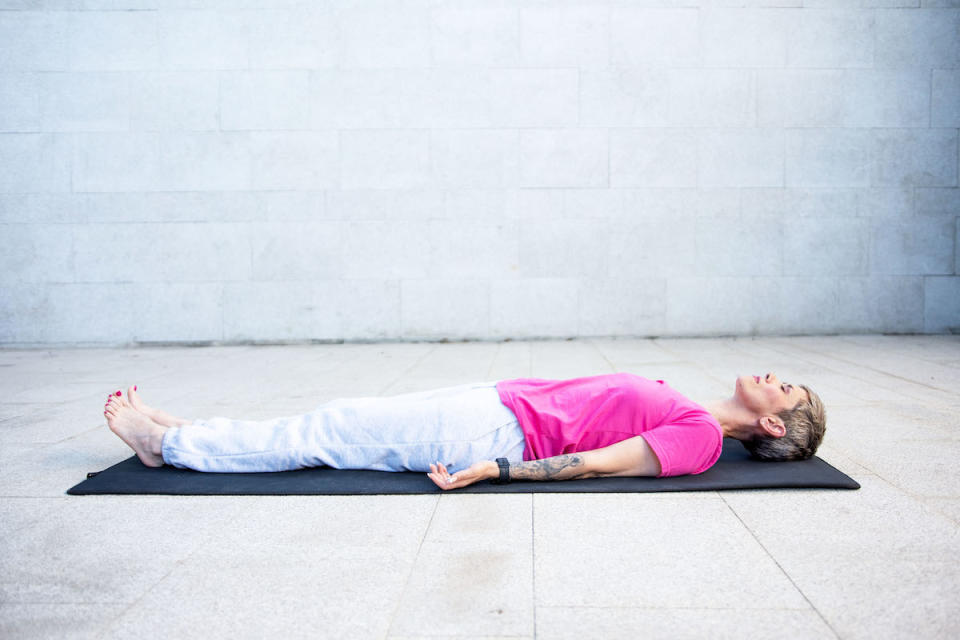How to Be More Patient: 6 Expert Tips to Invite More Strength and Serenity Into Your Life
We've all heard that patience is a virtue, but applying this virtue to our everyday lives is often easier said than done! In a fast-paced world that always expects us to be "on" and demands instant gratification, hitting pause can feel nearly impossible. But experts say you can learn how to be more patient — and that can help melt stress and boost resilience. Here, their top tricks to channel calm and fortitude for a more patient life.
How to be more patient: Cue calm fast
1. Show yourself grace
Before we can be patient with others, we must first show ourselves this grace, says Andrea Gould, PhD, co-author of Patience & Possibility and founder of Lucid Learning Systems, a consultancy for change and mindfulness resources. "Take a moment to put your hand on your heart and breathe, or spend time in nature or listen to music."
In fact, Gould curated a "patience playlist" full of tunes that bring her instant calm. Also smart: a patience goody bag. "If I know I'm going into a situation that will try my patience [DMV, we're looking at you!], I'll bring soothing items like a book, my joumal and something soft like a shawl — this sets me up with options that help me become more patient."
Related: How to Have More Energy — 6 Expert Tricks to Outsmart the ‘Great Exhaustion’

2. Rehearse your day
It may not seem like a top confidence builder, but patience stokes inner strength, says Holly Whitcomb, United Church of Christ minister and spiritual director and author of five books including Seven Spiritual Gifts of Waiting.
"We feel better about ourselves when we're able to remain controlled in situation that may have felt out of control," she explains, adding that this steely calm takes a bit of intentionality. "When I get up in the morning, I picture what's going to happen. What kind of spiritual or emotional maturity will I need to deal with all the people I'm going to meet? This question gives me the lead time to be reflective and kind."
3. Defuse the top trigger
When Allan Lokos, author of Patience: The Art of Peaceful Living and Founder Emeritus of The Community Meditation Center in New York City, sent out 1,500 surveys, asking people under which conditions they tend to lose their patience, he was surprised by the results.
"Overwhelmingly, they said, ‘When I’m not being heard.’” If this resonates with you and you feel talked over at work, for example, you might use “I” statements with colleagues like, “I don’t feel heard when...” Opening the lines of communication helps you build connections and foster patience at the same time.
Related: How to Stop Taking Things Personally: 6 Expert Tips to Build Resilience
How to be more patient: Find fortitude
1. Tap into active waiting
“Patience is not passive acceptance; it’s more assertive, inviting us to harness the resources within,” declares Whitcomb. A great example of doing just that is through what she calls “active waiting.”
“I’m thinking of all the kinds of waiting we do in life, like people who are caregiving or parents awaiting the return of their kids in the military,” she says, recalling how years ago, her mother personified this purposeful patience when she was diagnosed with stage 4 colon cancer. “Rather than close up shop, she walked 6 miles a day and got together with friends — she had four more astonishing years. Active waiting says, ‘I’m going to make this time, these years, as vibrant as I can.’”
2. Savor feel-good practices
Like any skill, patience takes practice, says Gould. “Consider progressive muscle relaxation, tensing and relaxing each muscle group starting with your toes — it works so well to develop patience because you can’t rush it.” She says anything that forces you to slow down, from following a complicated recipe to reading aloud to young children, will help usher in greater patience.
Related: How to Get Out of a Rut: 6 Expert Tricks That’ll Help You Feel Less Stuck and More Inspired

3. Envision the big picture
Perhaps the best way to cultivate inner calm, is to look to a higher power. “There’s a difference between our time and God’s,” says Whitcomb. “God’s wisdom is more expansive than my perspective. Reminding myself of this helps me become more patient with the bigger picture.”

